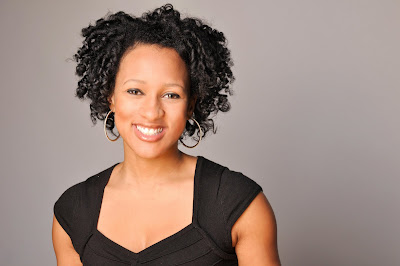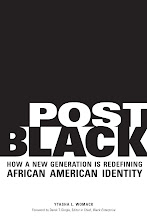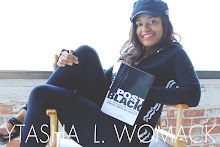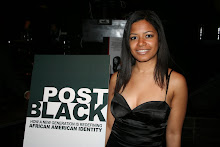
Valeisha Butterfield is Chair of WEEN, Women in Entertainment Empowerment Network. She is dedicated to empowering communities. A former Executive Director of the Hip Hop Summit Action Network she was recently appointed as the Deputy Director, Public Affairs at the Department of Commerce – International Trade Administration.
YLW: Tell us about your work with President Obama's Administration.
VB: It's great work. It's been five weeks. I work for the International Trade Administration . I was appointed by the Obama administration 5 weeks ago. It's an honor to make a difference. We create jobs in my department. With the economy in the state that it's in, it's great to create jobs and help families sustain themselves. Even in my work with Russell Simmons in financial literacy I was creating opportunity . To come from a financial literacy background for minorities and now be part of a national or federal department responsible for trading jobs is exciting.
YLW: For people who are unfamiliar with hip hop culture, the concept that it can be leveraged to facilitate social change sounds strange. How did you create that bridge between entertainment and social change when you ran the Hip Hop Action Network?
VB: Numbers don't lie. When you look at the bottom line, and benchmark setting, you can leverage and market a brand, but your program is only as good as its audience. You can have a great financial literacy program and have all the programming. But if you don't have an audience or participants it's a failure. For me, I recognized early on that not only am I a fan of hip hop culture, but I also saw the value it had.
There are few other mediums that can compete with the influence that entertainment has on young people. As teachers, we can get in front of these kids and talk til' we're blue in the face. But when they hear someone and they already support their music, to hear that message coming from them changes the way they feel about it - it effects them and how they receive the information. [Hip hop artists] have a platform and an audience. Why not leverage it and create a vehicle for artists to give back, but also enable kids to get information that helps impact their lives each day.
YLW: What is WEEN?
VB: WEEN is an organization I founded with three of my friends two years ago. It started as a meeting in my apartment with all of the top ranking execs in entertainment. It was humbling for me at the time to see the great response. You get so caught up in your everyday work, you don't know the respect you have from your peers. But what started as an invitation to 20 women wound up being for 120.
We started the organization as a way for women who wanted to pursue a career in entertainment. We have 40,000 members. The goal was to help create more balance, by mentoring, educating them, and giving them the life skills required to be successful.
It's not just limited African American women, it's for all women of all races and ages. We wanted to be as broad as we could and as inclusive as we could, for women who wanted a helping hand.
It's not just limited African American women, it's for all women of all races and ages. We wanted to be as broad as we could and as inclusive as we could, for women who wanted a helping hand.
YLW: What advice do you share with young women breaking into the industry?
VB: One thing that I always tell young ladies that I mentor - and I believe this is the key to success although I figured it out late in life. One of the things that I did wrong in the beginning, in interviews and meetings, whenever I was trying to pitch myself, I would go in selling how great I was, how educated, how smart, how right I was for the job. I would never get the job and I couldn't figure it out. Then one day a light bulb went off.
The key to success in an interview or business deal is instead of selling yourself and how great you are, show that person how you can add value to their business and their program. Do your research, study and understand your target. Find out how you can help increase their value and their bottom line. In business, people want to know how can you help them.
YLW: One of the great challenges that many high achieving women reference is this quest for balance. What is your take on that?
VB: Spiritual balance and personal balance is important for anyone who wants to be successful. That's something I'm still working on. Having a healthy balance between your career your personal life, and spiritual life. If you focus too heavily in one area, all three ultimately end up failing or not meeting your needs as a person. I've been guilty of focusing on one versus. another. But it's important to have that balance.
YLW: In this age, whether a woman can “do it all” is no longer a question. It's been proven. But how does a woman with multiple talents in a land of multiple opportunities choose?
VB: The founders of WEEN and I have have this debate all the time. It's a healthy debate as a woman who is talented at multiple things. How do you choose and balance and do it all? I have a different philosophy. If you do 5 things well, I say choose 1 and do it exceptionally well. I've always been much stronger, in choosing one thing having a sharp focus on it and honing it and becoming known for that.
Once you get that running, then you move and expand to the next thing. I'm very focused in what I try to do. But my colleague is a singer, a host, and an attorney. And she does 8 things exceptionally well, and she does it simultaneously and really well. It's what works for you. My advice has always been, choose one and become the best at it,
YLW: Why do you say choose one?
VB: For the average person, who is smart and has goals, it's difficult, almost impossible to be exceptional at all things at once. Whenever I wanted to get many things off the ground at one time, I become very average.
YLW: How have African American women unfolded in the past few years?
VB: For the past 10 years black women have really come into our own. Statistics show that African American women are growing leaps and bounds academically and even the media is starting to reflect that. To have an African American woman as First Lady, to have so many great and positive women in the public eye, I think it's an example of how far we've come. I think that as black women we remain as the backbone of the family structure, but we've expanded our options. We've become great professionals. . We have the confidence and exude the confidence of leadership that's always been within us.
YLW: In Post Black, I write about the vilification of the video girl. She's always a target. How do you feel about that?
VB: At the end of the day it's all about options and the notion of the video girl being judged for her decisions in life are unfair. At the end of the day, whether you're an actress, a singer, you have some type of role in front of the character. Do I agree with some of the things that are done. Of course not. Young girls are watching. When you have the world or segment of the world are watching. When you have an audience, why not take leadership in how people feel about themselves.
YLW: What advice do you have for women in business?
VB: As a woman, you have to have the ability to say no. I think by nature, most women feel the need to be nurtures. We want to get things done and be supportive and helpful and always find the answer and be available. But as a woman in business you have to say no without being apologetic. When you know your schedule is too tight and you don't have time to take a meeting, you don't have to squeeze it in. If a deal is on the table and a lot of money is at stake, but you're not comfortable with it, it's ok to say no. We want to say yes, but it's important to know the business in saying no.
YLW: Why do you think saying “no” is so difficult for women?
VB: It's just a part of our nature. We want to succeed and do good. We want to be liked and accepted by our male counterparts and we feel like it's a turnoff , not just personal, but professionally to say no. But any professional can respect a decision. That's something that I've had to overcome, and something my colleagues have had to overcome. In the end, it always works for the best, even it if it's not comfortable at first.
YLW: How did you gain the power of “no?”
VB: It goes back to strategy and knowing what your long term goals are. Every decision that you make should all roll up to that bigger strategy that you have for your life. Know that there is a bigger picture for your life that you have created, that God has created. It makes you less focused on acceptance when you know where you're headed in life. You focus less on being accepted and more on what your plans are in life.
YLW: When you hear Post Black, what comes to mind?
VB: There was a time when as black people the first adjective we'd use describing ourselves would be so say that we're black and any other identifier was second. That was a description that was used more often in the past than today. As black people we are finding out who we are and our individuality is shining. I am absolutely 100 percent proud to be a black woman. But if you ask us to define ourselves, I'll say I'm spiritual, I like to shop, etc. Because we've expanded so much as people. We have defined ourselves. Yes we are African American and proud, but we are so many things that we are proud of too. Individuality in the African American community is a part of who we are, but not losing our racial identity, is important, too.
YLW: Some people fear that you can't embrace individuality without dismissing the struggles of the past. But the two aren't mutually exclusive.
VB: We cannot forget our struggle as a people. Although we've had great examples of success, we still have along way to go, so it would be a huge mistake for us to forget that our ancestors sacrificed for us to be who we are. We also have to educate our kids. I didn't grow up during the Civil Rights Movement, but my parents made sure I knew about the struggle, so that I could know as a black woman who I am and where I came.
We must not forget. We must learn from the past and we should have a sense of pride. We didn't get here easy. It wasn't a cake walk. A lot of people made sacrifices, a lot of people lost their lives. But we can't let that hold us back either. We have to keep pushing forward, and keep evolving, in order to be who God wants us to be.
For more information on WEEN go to http://www.weenonline.org/






